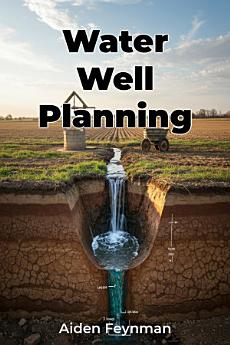Water Well Planning
About this ebook
The book's approach is rooted in established earth science principles and engineering practices, enhanced by modern drilling and data analysis technologies. Readers will gain insights into aquifer characterization and groundwater flow modeling. It presents information in a structured progression, starting with the global water cycle and then moving through hydrogeological investigations, well design, water quality testing, and concluding with maintenance.
Ultimately, Water Well Planning aims to promote sustainable water use and minimize environmental impact. By blending theoretical knowledge with practical applications, the book offers a valuable resource for anyone involved in water well construction or management, covering topics from geological assessment to maintenance procedures and ensuring the long-term sustainability of water sources.








